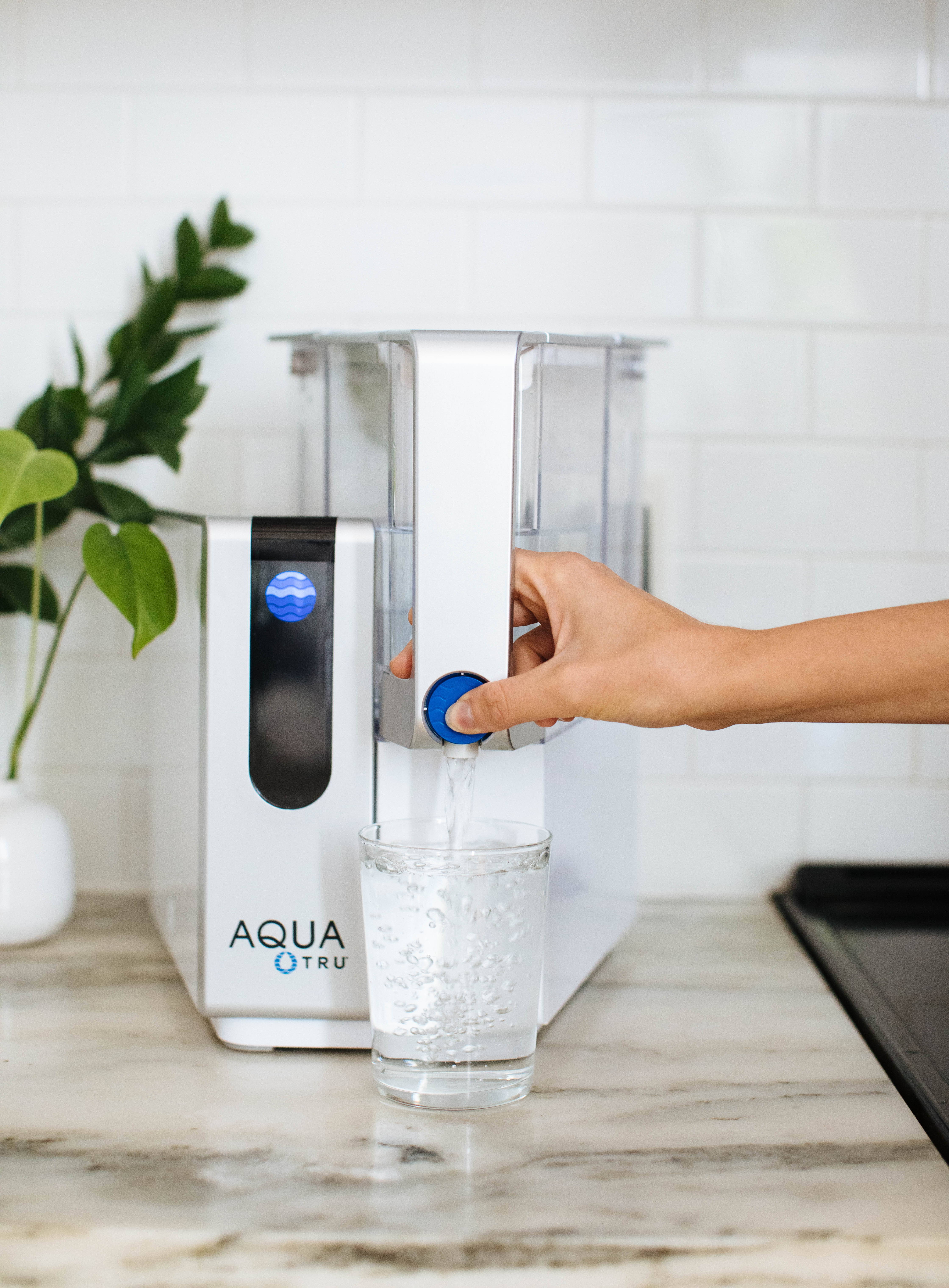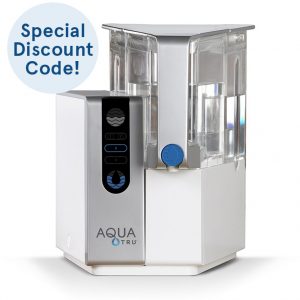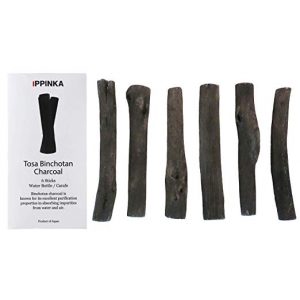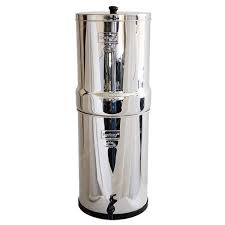There’s no doubt that drinking enough water is absolutely essential to overall health, and it all starts with picking the right water filter.
Water purification systems work in many different ways to remove harmful toxins, chemicals, and contaminants from your water. While some physically separate sediment and solid particles, others push liquids through a semi-permeable membrane or use a combination of heat and light to kill off microorganisms.
With so many types of water filters on the market, however, it can be tricky to determine which one is the best fit for you. This in-depth article will take a closer look at a few of the most popular water purification systems available, along with the benefits and drawbacks of each, to help you make an informed decision.
Why Do You Need A Water Filter?
Do you know what’s in your tap water? Filling up your cup directly from the sink may seem harmless enough, but if you don’t have a filter installed, there’s no telling what you could be drinking.
In fact, a 2009 analysis conducted by the Environmental Working Group found 316 contaminants in the water delivered to the public, 202 of which have no regulated safety standards. Among the contaminants found in the water supply were chemicals like metolachlor (an herbicide), Radon (a radioactive, cancer-causing gas), and acetone (a flammable liquid used in cleaning) (1).
Other dangerous compounds may also be present, including heavy metals, toxins, and endocrine disruptors. These compounds can throw hormonal balance out of whack and contribute to a slew of negative side effects, including developmental delays, impairments in immune function, neurological problems, and reproductive issues (2). Using a filter can extract these compounds and help purify your water to ensure that it’s safe, healthy, and chemical-free. Water filters can also improve the taste and smell of your water, which makes it easier to stay hydrated and drink more water throughout the day.
What about using bottled water instead? Although water bottles are increasingly popular, there are a number of negative side effects associated with the use of bottled water. Not only are water bottles pricey, but they’re also made of plastic, which can be detrimental to the environment. Furthermore, there’s no guarantee that bottled water is any better than the water from your tap.
The National Resources Defense Council, an environmental advocacy group, conducted a four-year review of the bottled water industry to evaluate the overall quality and safety standards. According to the organization, about 25% of bottled water contains tap water that may or may not have been further treated. Additionally, while the majority of bottled water evaluated was safe and clean, about 22% of brands tested contained chemicals above-established safety limits in at least one sample (3).
Investing in a quality water purification system is the best way to limit your exposure to harmful chemicals and keep your drinking water clean and free of contaminants.
Top 6 Water Filtration Systems
When it comes time to purchase a water filter, there are several different options available. Here are a few of the most common, plus some of the main pros and cons to consider with each.
1. Reverse osmosis filter
Often considered the best water filter option by many because of its widespread availability and ease of use, the reverse osmosis system is a purification process in which water passes through a semi-permeable membrane to remove contaminants like heavy metals and toxins. The reverse osmosis water filter is popular because it can be installed as a simple under sink water filter along with a faucet fixture, which makes it an easy and convenient option. AquaTru, in particular, is a great brand we love and recommend here at NS that produces countertop model filters that are easy to use and require no installation.
There are several drawbacks to consider for this water filtration system, however. For starters, it can waste quite a bit of water compared to other methods. It also requires careful maintenance as the pores can become easily clogged, and filters need to be replaced regularly to ensure proper function.
Keep in mind that reverse osmosis strips many minerals from water. While this is not usually a significant concern, as most of us get these important micronutrients from other food sources, many recommend using trace mineral drops or other filters to help re-mineralize your water. Additionally, while some claim that reverse osmosis can “leach” minerals from your body, there is no evidence to support this, and it is considered safe by organizations like the Environmental Protection Agency (EPA).
Pros:
- Widely available
- Easy to use
- Convenient
- Removes the most contaminants amongst other water filters
- Water tastes very clean
Cons:
- Wastes some water
- Depending on the model, can be slower to filter
- Requires regular maintenance
- Removes minerals from water
2. Infrared filter
This type of water filter uses a combination of heat and light to remove impurities and soften water, making it a great choice if you live in a place where hard water is common. Hard water is typically high in dissolved minerals like calcium and magnesium, which can cause a long list of problems. Not only can hard water damage your pipes, appliances, and clothing, but it’s also hard to clean and can dry out your hair and skin.
Unlike other filters, this water filter system is a bit more difficult to find, as it isn’t quite as mainstream yet. They can be installed right on the main water line for the house, ensuring that water is filtered before it even reaches your sink. However, it can be very expensive compared to water filter alternatives that are available, so it may not be the right choice for everyone.
Pros:
- Helps soften water
- Effective at removing impurities
- Can be installed in the main water line
Cons:
- Difficult to find
- Expensive
3. Alkaline water filter
Alkaline water filters utilize a process called electrolysis, which uses electricity to split the water into hydrogen and oxygen, or alkaline and acidic components. This results in a final product that is more alkaline, meaning that it has a higher pH. Although studies on the effects of alkaline water are still limited, some research suggests that drinking alkaline water could be beneficial for blood pressure, blood sugar, and even cholesterol levels (4).
Using an alkaline water machine or ionizer is a convenient way to raise the pH of your water. Although these products tend to come with a hefty price tag, they require little to no maintenance and can be easily installed.
Still, alkaline water remains a subject of controversy, and many believe that health claims don’t quite live up to the hype. Critics of alkaline water point to the fact that the body closely regulates its own pH naturally by controlling the absorption and excretion of hydrogen ions in the urine, making it unclear exactly how effective alkaline water may be.
Pros:
- May be associated with health benefits
- Requires little maintenance
- Easy to install
Cons:
- Controversy over potential health benefits
- Expensive
4. UV filter
UV water filters use ultraviolet rays to remove harmful chemicals and toxins from water by killing microorganisms as they pass through the light. This method is highly effective at removing harmful toxins and bacteria from water to provide you with the purest drinking water possible. It’s also quick, chemical-free, and efficient, wasting little to no water and using minimal amounts of energy.
Keep in mind that the UV filter should be used with sediment or whole house water filter as well. This is because this type of water purifier doesn’t eliminate physical contaminants, heavy metals, chlorine, or salt. Therefore, this option can be very effective, but it can also have some hidden costs to consider as well.
Pros:
- Effectively removes toxins and bacteria
- Free of chemicals
- Energy-efficient
- Wastes minimal water
Cons:
- Needs to be paired with other filters
- Doesn’t eliminate physical contaminants
5. Activated carbon filter
Carbon filters are used in both air purifiers and water filters alike. They use a bed of activated carbon to trap pollutants and contaminants from the water and are commonly used in portable products like the Brita filter and refrigerator filters. This type of filter relies on a process called adsorption, which basically draws harmful molecules and compounds from the water into the pores of the activated charcoal to filter out impurities.
Berkey water filters are a popular option that use granulated activated carbon to help remove contaminants from water. Charcoal sticks are another affordable option that is used to naturally purify filter using the same mechanism. However, they must be boiled every few months to ensure that they remain effective.
Activated carbon filters require a bit more maintenance than many other water filter types, as they need to be replaced periodically once the filters have been filled. They also don’t remove all compounds, and a secondary filter may be necessary to help soften the water or remove molecules like microbes, fluoride, or nitrates.
Pros:
- Removes impurities efficiently
- Available in portable products
- Several options available
Cons:
- Requires regular maintenance
- May need a secondary filter
6. Mechanical filter
With this simple type of filter, water passes through a series of small holes to help eliminate solid particles and sediment. Within the filter, a material such as nylon is used to contain pollutants while clean water is passed through.
Mechanical filters help improve water clarity and remove physical contaminants and waste. However, they do not remove chemical contaminants and have no impact on other pollutants like heavy metals, minerals, or toxins. For this reason, mechanical filters should always be paired with another form of water filter to maximize water purity.
Pros:
- Most simple type of filter
- Improves water clarity
Cons:
- Doesn’t remove chemical contaminants, toxins, or heavy metals
- Should be combined with other filters
NS Recommends
If you’re concerned about the safety of your water, be sure to get it tested. Try reaching out to your county’s health department or contacting a state-certified lab to get your water tested for safety. You can also donate to organizations like Charity: Water, World Vision, or The Water Project to help provide clean water to those in need.
Investing in a quality water filter for your home is a great first step to reducing your exposure to many of the pollutants, chemicals, and contaminants that may be found in your drinking water. It’s also an environmentally-friendly and cost-effective alternative to water bottles, which may even contain certain compounds in levels higher than the established health limits.
Our top pick from this list are any units that are reverse osmosis — like the AquaTru.
Fortunately, there are several types of water filters available, which makes it easy to find an option that works for you. Regardless of whether you select an infrared, activated carbon, or reverse osmosis filter, there are many different ways to stay hydrated and enjoy plenty of clean, healthy water as part of your daily diet.
If you’re looking for more support and ways to stay hydrated, then check out our best-selling Online Education Programs. We offer programs to give you the tools you need for meal planning, learning how to stock your kitchen, give your body a reset with whole foods, and more. Click here to explore what programs are right for you. Or if you’re ready to get started now with making Healthy Eating Simple, then taking our free 4-part series, click here to join!
This post contains affiliate links which mean if an item is purchased once the link is clicked, we as a company make a small percentage of that sale to support our efforts here, thank you! Both Berkey and AquaTru water filters were gifted to us as a company, our unique opinions and honest reviews of both of these models are not swayed nor influenced by the gifting.











